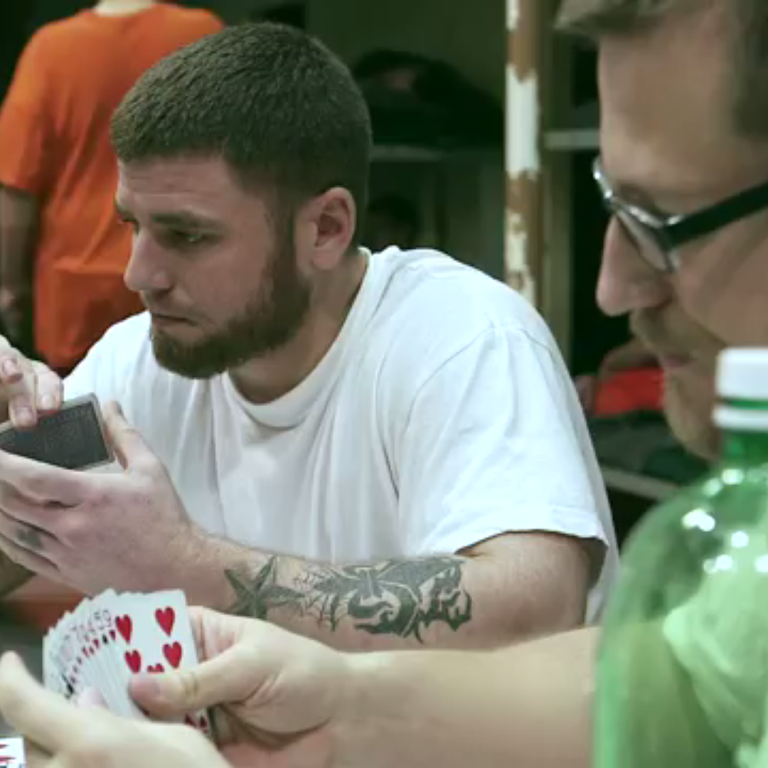
Veterans locked up in US prisons more likely to commit suicide or suffer mental health issues
Two-month undercover operation finds inmates are unaware of support services jails offer veterans
It's all too common for veterans in the US to wind up in jail.
And behind bars, many of them don't have access to the services they need to get their lives back on track.
That's what the participants on the A&E documentary series "60 Days In" learned during their stay at Clark County Jail in southern Indiana.
The show follows seven people who go undercover as inmates for two months to expose problems within the system.
One of the participants, Zac, estimated 10 per cent of the inmates he lived with were veterans, all of whom suffered from depression or post-traumatic stress disorder. Like many drug-addicted inmates, they often resorted to homemade drugs to self-medicate.
He said most inmates weren't aware the jail offered veterans advocacy services and an Alcoholics Anonymous support group — and that jail staff rarely advertised the fact that such programs existed.
"Regardless of whether or not they're in jail, they still took the same oath that they would protect the country with their life," Zac says. "They still deserve to be treated for issues they developed because of that oath they took."
Veterans in jail are more likely to suffer from mental health issues than other inmates, according to the most recent data from the Bureau of Justice Statistics. Veterans are much more likely than civilians to commit suicide.
Zac himself is a veteran, having served as a combat engineer with the Marines in Afghanistan.
When he returned home from deployment in 2010, he said he refused to talk about his experience with friends and family. For a few months, he found comfort in alcohol, consuming more than US$1,500 worth a month.
Zac now advocates for 22Kill, a group that raises awareness of veteran suicide.
Although Zac assumed a false identity for the show, he did incorporate details from his military background into his cover story.
"It definitely gave me a degree of respect. Their first thought was probably, 'this guy probably knows how to fight.' It helped keep me out of some situations," he recalled.
For part of his stay at Clark County Jail, Zac shared a cell with two other Marines. In one scene from the show, his cellmate offers Zac half of his meal, an almost unheard-of act of kindness in jail.
"There was a level of camaraderie, we watched out for each other," Zac said. "The saying goes, 'Once a Marine, always a Marine.' We were in different theatres, different wars, but they're still Marines, and you watch out for them the same way you would anywhere else."
Watch a clip from "60 Days In" below:

